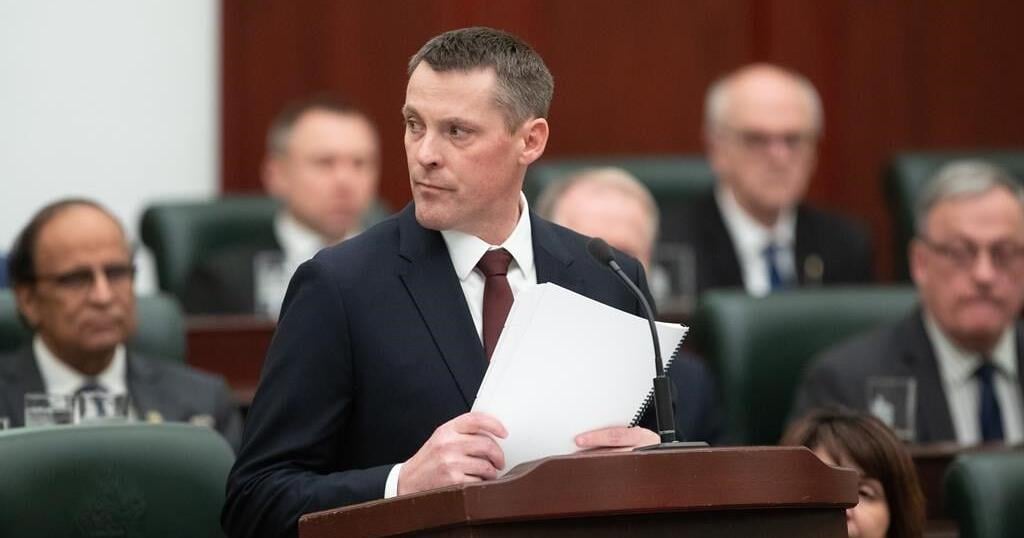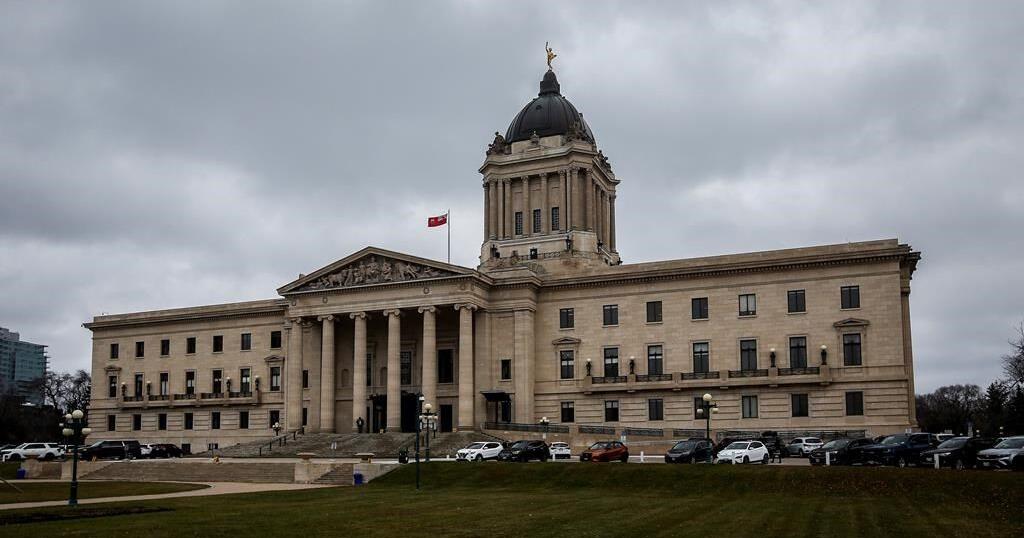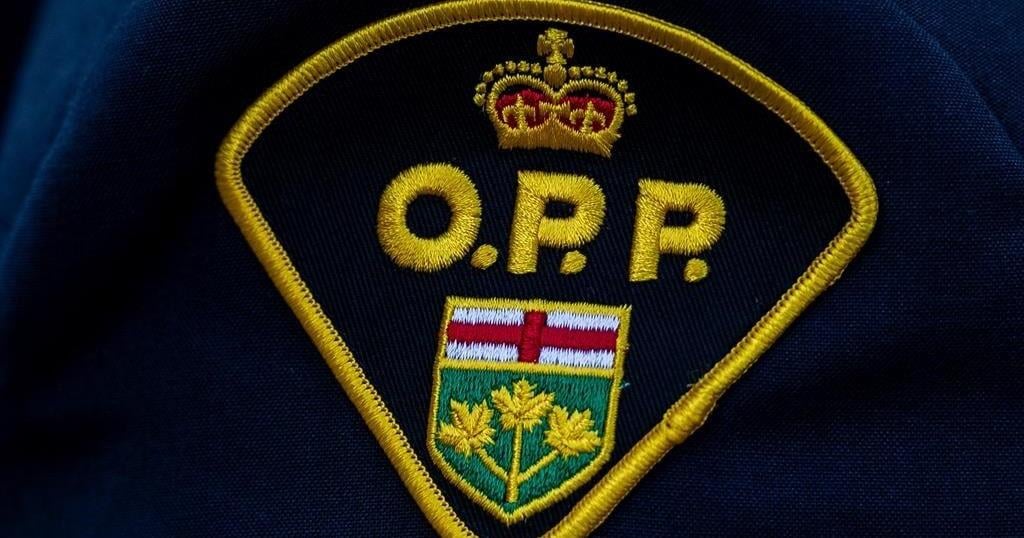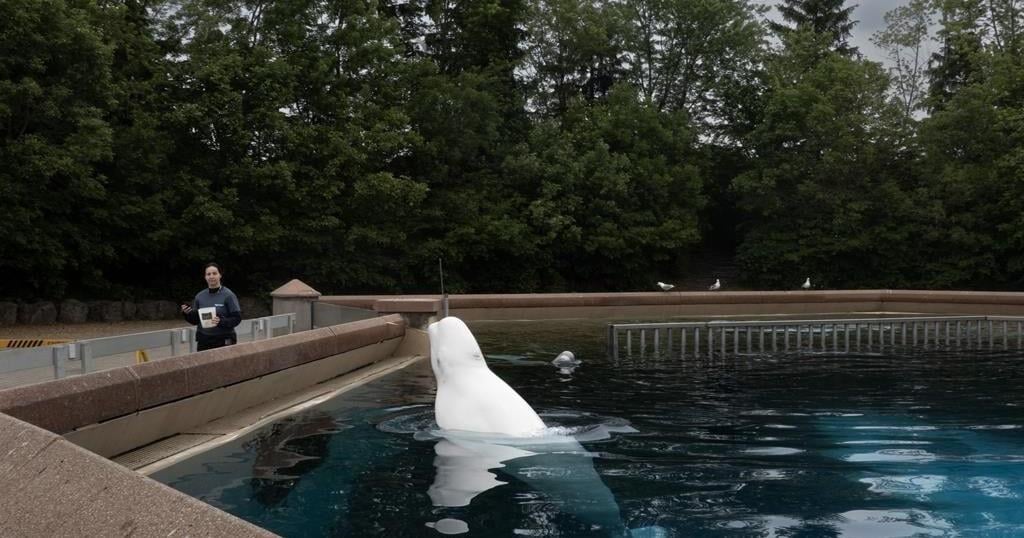EDMONTON – Alberta’s finance minister has sacked the chief executive officer and entire board of directors of Alberta Investment Management Corp., the Crown corporation that manages pension and other funds for the province and handles more than $160 billion in assets.
Finance Minister Nate Horner said in a statement Thursday that the changes at AIMCo are due to rising management fees coupled with a consistent failure to meet mandated benchmark returns.
The decision takes effect immediately and Horner will be sole director and chair for AIMCo until a new chair is appointed within 30 days, with a new board established after that.
Horner told reporters that he’s been watching AIMCo closely, and determined changes weren’t going to happen without a “major reset.”
The pension fund manager’s chief executive officer, Evan Siddall, was also fired Thursday, as were three other senior executives, Horner said.
Siddall had been in the role since the summer of 2021.
“Sometimes you just need a clean slate,” Horner said, adding that an interim chief executive will be named in the coming days.
“I’m doing this because … I’m the minister responsible, and costs like this are borne by all its clients, Albertans in general and the pensions that they represent now.”
The province said that from 2019 to 2023, AIMCo’s third-party management fees have increased by 96 per cent, the number of employees increased by 29 per cent, and wage and benefit costs increased by 71 per cent.
These costs all increased, it said, while AIMCo managed a smaller percentage of funds internally.
AIMCo, in its latest annual report, said it had $161 billion of assets under management as of the end of last year, with 600 employees spread across offices in Edmonton, Calgary, Toronto, Luxembourg and London, U.K.
It said it handles about $118 billion in investments for public sector pension plans representing thousands of Albertans, including teachers, police officers and municipal workers.
Alberta Teachers’ Association president Jason Schilling said they are monitoring developments and will defend the interests of active and retired teachers as needed.
“The association disapproved of the government-mandated transferring of teacher pension assets to AIMCo in 2020 and we remain concerned about the politicization of pension policy,” said Schilling in a statement.
AIMCo is also responsible for managing the Alberta Heritage Savings Trust Fund, in which Premier Danielle Smith has pledged to stash over $250 billion.
Court Ellingson, the Opposition NDP finance critic, called the move to get rid of the board and chief executive “unprecedented.”
“If they’ve been monitoring this for a while, they had many opportunities to do something that was not so drastic and earth-shattering as today’s move,” Ellingson said, adding he’s concerned about what message is being sent with a politician being the sole director of the corporation, even temporarily.
“In a fund of this size, you have investment decisions that are happening all the time,” Ellingson said. “The people who are on the other side negotiating those deals have just seen an elected, partisan political person being put in charge of these funds.
“That makes them question the deal that they are making. It makes Albertans question the stability of this fund. It makes Albertans question whether or not that fund really is under the thumb of the premier and the finance minister.”
AIMCo, which was established in 2008, has weathered controversy in recent years.
In the spring of 2020, it took a $4-billion loss on the $110 billion it managed.
AIMCo officials at the time said the loss was a result of COVID-19-related market swings, which also led to an ensuing oil price war.
Then-premier Jason Kenney defended the fund managers, saying at the time that the loss was a “fraction” of what was seen elsewhere.
This is also the third board to be fired in its entirety by the UCP government, following Smith’s firing of the Alberta Health Services board in 2022 and the firing of the Banff Centre for Arts and Creativity board last year.
This report by The Canadian Press was first published Nov. 7, 2024.

























